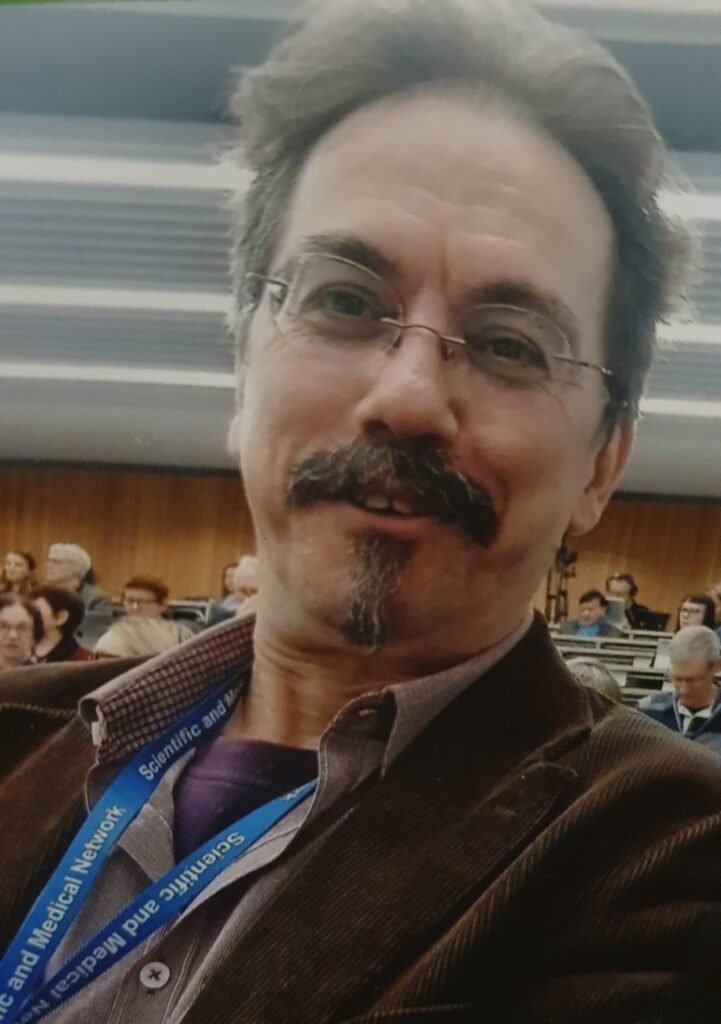Your cart is currently empty!

Beyond the Looking-Glass – Eppur Si Muove! The Sudden -and persistent- Vortex of Ilya Prigogine and their descendants
- This event has passed.
March 9, 2025 @ 6:00 pm – 8:00 pm CET

83 people are attending Beyond the Looking-Glass – Eppur Si Muove! The Sudden -and persistent- Vortex of Ilya Prigogine and their descendants
Eppur Si Muove! The Sudden–and persistent–Vortex of Ilya Prigogine and their descendants
with Vasileios Basios
Sunday, March 9, 2025
9am PST / 12pm EST / 5pm GMT / 6pm CET
Beyond the Looking-Glass, Session 4 of 6
This event is LIVE. All participants will receive the RECORDING.
Since Ilya Prigogine’s ‘sudden Vortex’ was reflected in the ‘Looking Glass Universe,’ complexity theory has advanced by leaps and bounds. From a marginal theory in the corners of physics, it has become the cornerstone of many advanced new sciences.
From physics, physical chemistry, biological systems and ecology to social networks and leadership in organisations, the very ideas he developed and put into practice—emergence, entropy, self-organisation, spontaneous symmetry breaking, bifurcations and chaos—are today’s bread and butter and central. The focus has shifted towards understanding how order and chaos lead to new structures and behaviours at higher levels of complexity, adaptivity and extended domains. We now know that Life is unpredictable, but not an accident. It cannot emerge from total randomness, nor can intelligence and consciousness.
We need to establish a new discipline: self-reflexive interdisciplinary studies of consciousness. Such studies will empower science by extending it beyond naive reductionism and to become more useful in exploring reality, both within and without. It will also empower society to shed more light on the root causes of some of its major problems, including suggestions on how best to deal with them.

Dr Vasileios Basios is a senior researcher in the Physics of Complex Systems at the University of Brussels, with over 25 years of experience in research and coaching. His interdisciplinary work focuses on self-organisation, emergence in complex matter, complementarity and the foundations of complex systems.
Mentored by Nobel laureates Ilya Prigogine and Grégoire Nicolis, Dr Basios received his Ph.D. from the University of Brussels after studying cybernetics with John S. Nicolis. His research interests include foundations of complexity science, emergence in complex matter, nonlinear dynamics and chaos in biological information processing, computability and the logic of extended Bayesian inference. Dr Basios has participated in several research initiatives, including the European Space Agency’s Complex Matter programme and EU projects such as Pythagoras I&II and Thales I&II.
He is deeply interested in the history of scientific ideas and their role in transforming science beyond the mechanistic worldview. His work aims to bring insights from complex systems science to consciousness studies, working towards an inclusive and self-reflexive interdisciplinary science of consciousness. In 2023, his research team received the inaugural Linda G. O’Bryant Noetic Sciences Research Prize for their study on detecting deviations from random activity as indicators of nonlocal consciousness correlates beyond the brain.
Dr Basios serves in various capacities, including as a speaker for the Scientific & Medical Network after a period as its co-Chair and board member, as a member of the Galileo Commission Steering Team, and as a Trustee of the International Consciousness Research Laboratories (ICRL). By contributing to complexity and consciousness research in a variety of formats, from podcasts to books to peer-reviewed papers, he aspires to advance knowledge in this evolving field.
Who's coming?
83 people are attending Beyond the Looking-Glass – Eppur Si Muove! The Sudden -and persistent- Vortex of Ilya Prigogine and their descendants
